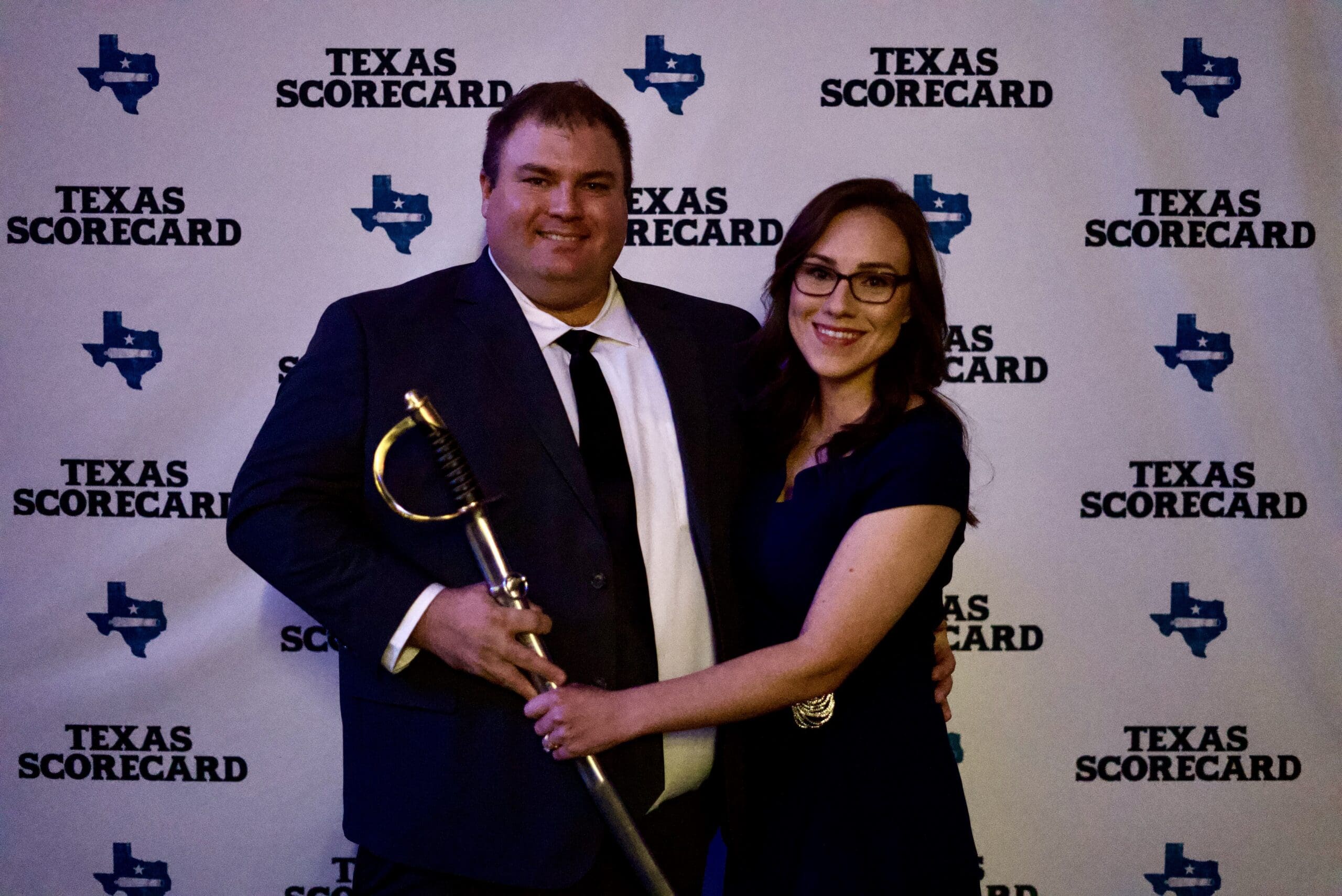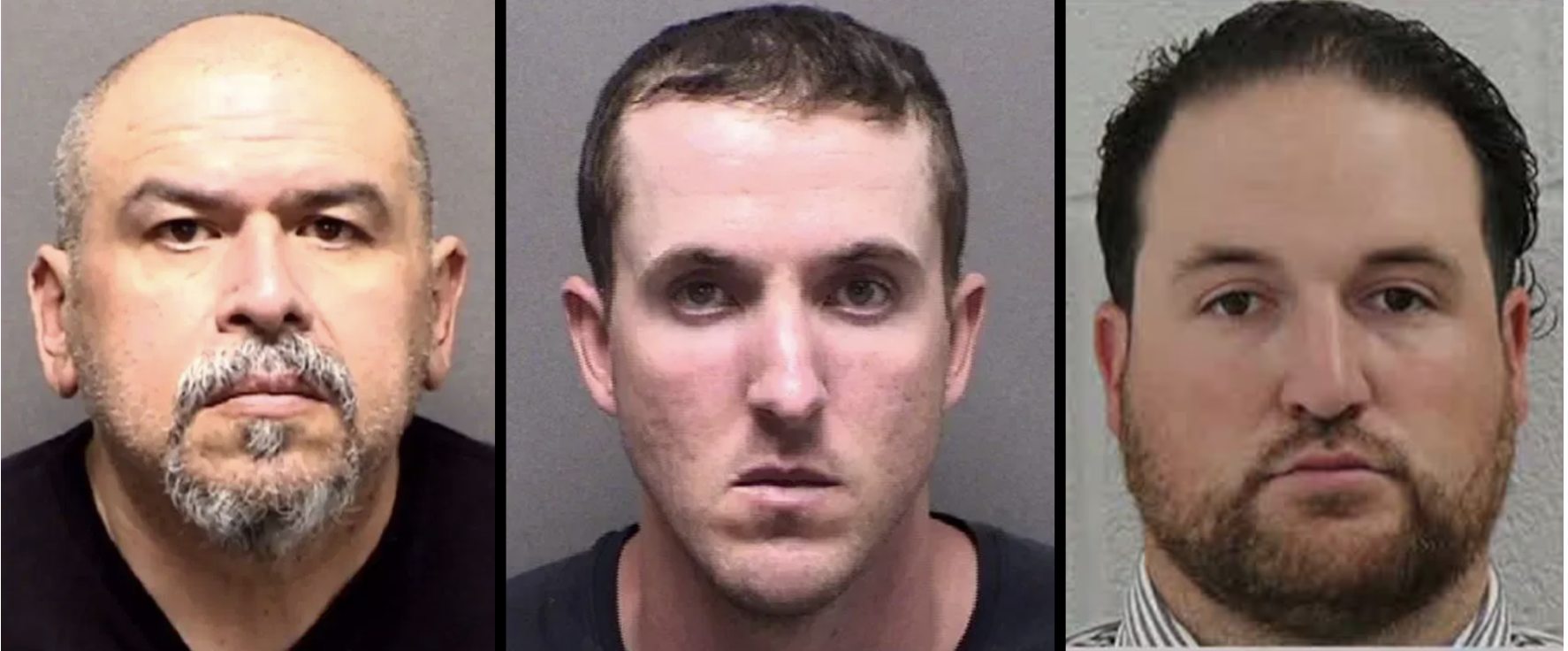A Texas transplant and mom of four, Cassandra says she and her husband Josh only became involved in politics after their son returned to school following the COVID-19 shutdowns.
“We’re parents, not politicians,” Cassandra told Texas Scorecard.
Cassandra graduated from Texas A&M Kingsville with a degree in political science and a minor in international relations.
However, she said her most pivotal coursework was on constitutional law, learning how to read the Constitution and legal transcripts.
She became a paralegal—“I literally represented a whole company in court on my own”—only to discover her employer was committing insurance fraud. Cassandra turned them in to the state and warned her coworkers before leaving for another job.
“It was a pivotal point in my life,” said Cassandra. “And at that time, I didn’t even realize it. I did not realize then what I was being prepared for later. I just knew that an injustice was occurring and it needed to be corrected.”
Cassandra says that at the time, the experience was horrifying. Now, she thanks God for preparing her for the fight ahead.
“I saw something was wrong. And I was able to take action, and then there was a result from that action. So, ultimately, this company did get investigated. And they did get fined for all the things that they did, and they had to pay everybody back,” said Cassandra.
She points to her education as the reason she was “able to help take them down.”
“Education is power. So, why don’t we want our children to have it?” asks Cassandra.
Shifting Careers
Not long after, Cassandra made a career shift to be on the same schedule as her son. She became a teacher.
While teaching in a rural area in South Texas with students in the lower socioeconomic bracket, one of Cassandra’s students was a 14-year-old sixth-grader who couldn’t read at grade level.
“She was just getting passed through this system,” said Cassandra. “And it wasn’t just her; there were more of them. And she was the worst case, but in a lot of instances, there were many more. And I talked to my colleagues about it, and there was remorse and empathy. Everybody wanted to help, but nobody could.”
The system was broken. There was not enough staff, not enough time in the day, not enough anything to get her the help that she needed. And in that area, there was very little parental support, also.
“That was my first time witnessing that. Parents are so important, so important to education,” said Cassandra.
She then moved to the Houston area, where she taught in a top 100 school.
“I wanted to try something completely different and teach somewhere where the parental support was at a max, because I wanted to see the difference,” she said.
At this new school, Cassandra’s students had the best STAAR scores for her subject and grade level in the district. She was then tapped to help write curricula for the district.
“I think, as a teacher, one of the things you learn is that everybody learns differently, and everybody needs something different,” said Cassandra. “No two students are the same, from kindergarten all the way until adulthood.”
Supporting School Choice
“So, having to spend so much time … learning the different ways that individual students learn and how to get them to be successful … is what prompted us to kind of lean toward school choice to begin with,” said Cassandra.
She began running into issues with her own son in the local school district. He had excelled at a charter school in South Texas but wasn’t given the same ability to fit his work to his learning style at his new school.
Cassandra’s son’s assignment was to write a paper about his favorite season—those were the only instructions. He picked deer season. “He came home with a bad grade, and he was so upset,” Cassandra explained.
“That’s like a very geeky way to perceive something,” she said. Cassandra spoke with the teacher about the assignment’s vague instructions. “He fit your parameter, and he gave it to you, and you’re telling him now that it’s wrong. And I don’t like that, because he’s not wrong.”
“He was just having to play in this system that was not meant for him,” said Cassandra. She then left teaching to homeschool him virtually through an online option. After COVID-19 shutdowns ended, he was ready to go back to school.
However, Cassandra says things weren’t right from the beginning. Teachers didn’t respond to emails, the English class was full of social justice books, and the school district attempted to deny her son his 504 plan.
Then the school wouldn’t allow parents to view a sexual violence seminar presented to the students.
At this point, Cassandra was told that to make the most difference, she should join the SHAC (Student Health Advisory Council), which determines the sexual education and health curriculum in each school district in Texas.
She and her husband were appalled at the Goodheart-Willcox health curriculum presented.
“We’re fighting all of these battles all the time, and somebody I met says it’s like whack-a-mole. It’s just one thing after another, after another, after another,” said Cassandra.
At this point, they got involved in the Republican Party, speaking at the Republican Party Convention on behalf of school choice.
Parental choice in education is a legislative priority for the Texas GOP this session.
“We’ve worked with so many different organizations,” said Cassandra. “And one of the things that we stick to is that we are parents, not politicians. I have no idea what we’re doing pretty much all the time, and because of that, we make mistakes. But also because of that, sometimes things turn out really great. Because we don’t belong to any organization, it allows us to move freely between the organizations.”
Cassandra says it’s “100% of our time. For free. It’s exhausting. It is more than a full-time job. But we do it because we’re committed to the best outcome for all kids.”
She was offered the chance to come back and teach again, but the Poseys have three young daughters at home.
It was the hardest decision of our lives, almost … deciding whether or not I would go back. It was so hard, because I thought: “I want to help kids. I see what’s happening and maybe I could help. But am I willing to do it at the cost of my own children?” The answer was no.
Cassandra believes students will be better served with more choices, and she is tirelessly working to ensure they have those opportunities. She cited the example of a school choice program in Houston with 70 percent of students in the low socioeconomic bracket but a 100 percent graduation rate and high test scores.
“And it’s because they have options. Because it’s however you want to learn and whatever is best for you,” said Cassandra. “We see that it works. So, why don’t we want it to work for everybody?”





